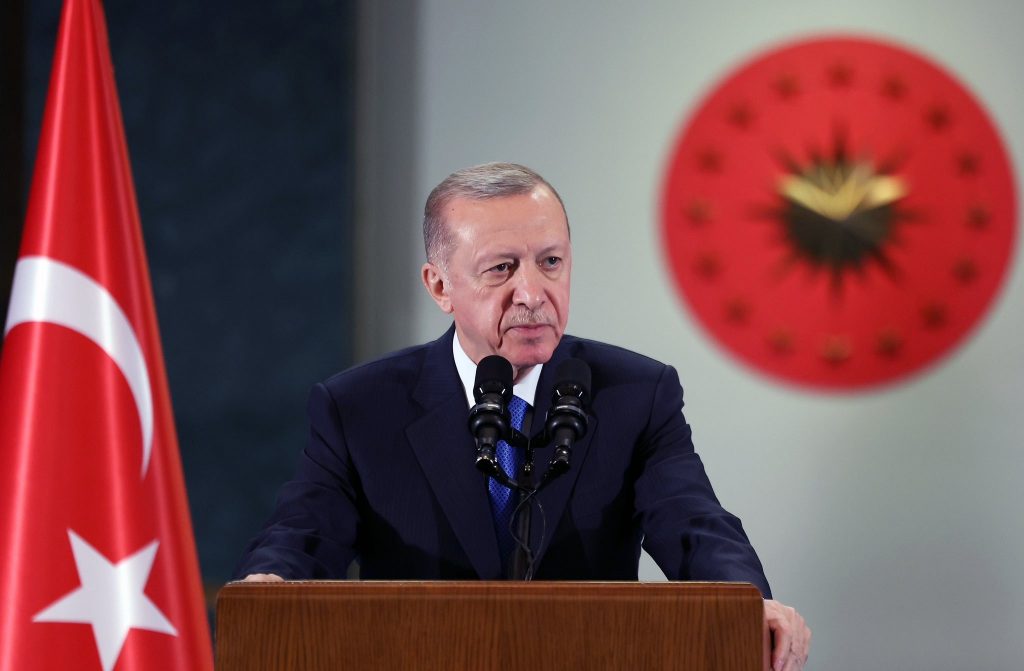There has been a record increase in the number of people being investigated and prosecuted for ‘insulting’ the Turkish authorities in 2022.
A total of 16,753 people came before a judge in a criminal court after they were accused of either ‘insulting the President or government’ or ‘denigrating Turkishness’, both criminal offences under Turkish Law.
The figures for 2022 mark a steep rise on the previous year, up by more than a third, as 4,449 more people are tried for these offences.
Number of cases brought against people insulting the president since 2019
2022: 16,753
2021: 12,304
2020: 9,560
2019: 13,739
The annual statistics were announced by the Ministry of Justice earlier this week, which reiterated that all the cases were launched in accordance with Articles 299 and 301 of the Turkish Penal Code (TPC).
A total of 7,600 cases were initiated against people in criminal courts in 2022 accused of breaching of insulting the state. The number of suspects involved in these cases was given as 7,712, while the number of “crimes” they are accused of committing by prosecutors stood at 8,711.
The Ministry of Justice figures for 2022 further showed that 1,872 defendants who were tried in criminal courts under Articles 299 and 301 were found guilty and sentenced. A further 3,135 defendants were given suspended sentences, while 2,226 people were acquitted last year.
About Articles 299 and 301 of the Turkish Penal Code
These controversial TPC Articles, rooted in the country’s 1982 Constitution that was introduced under military rule in Turkiye at the time, make it a crime to disrespect the dignity and symbols of the sovereignty of the state and its organs, which are embodied by the president and government officials.
Article 299, which was amended on 29 June 2005 by Law No. 5377 (Article 35), makes it a criminal offence to insult against the President of the Turkish Republic. The provision reads as follows:
(1) Any person who insults the President of the Republic shall be sentenced to a penalty of imprisonment for a term of one to four years.
(2) Where the offence is committed in public, the sentence to be imposed shall be increased by one sixth.
(3) The initiation of a prosecution for such offence shall be subject to the permission of the Minister of Justice.
Article 301, which was adopted in its current form following an amendment in April 2008, makes it a crime to degrade the Turkish Nation, the State of the Turkish Republic or the organs and institutions of the State. The provision reads as follows:
(1) A person who publicly degrades the Turkish nation, the State of the Republic of Turkiye, the Grand National Assembly of Turkiye, the Government of the Republic of Turkiye or the judicial bodies of the State, shall be sentenced to a penalty of imprisonment for a term of six months to two years.
(2) A person who publicly degrades the military or security organisations of the State shall be sentenced to a penalty in accordance with paragraph 1 above.
(3) The expression of an opinion for the purpose of criticism does not constitute an offence.
(4) The conduct of an investigation into such an offence shall be subject to the permission of the Minister of Justice.
Turkish government accused of “weaponizing” the law to stop legitimate criticism
However, many people believe the two Articles are being misused, resulting in thousands of people of all ages being prosecuted simply for using what should be their democratic right to criticise the Turkish President Recep Tayyip Erdoğan and his government.
In an article in independent daily BirGün about the record rise in prosecutions, journalist Mustafa Bildircin accused the ruling Justice and Development Party (AKP) of weaponizing the law to silence the opposition:
“Articles 299 and 301 of the TPC, which fall under the title of “Crimes Against the Sovereignty of the State and the Dignity of Its Organs” that are considered to be the “biggest obstacle to freedom of expression”, have essentially been weaponised to punish opponents of the government.”
Bu stickerları üreten tasarımcı, bu sabah gözaltına alındı.
Ürünler tam da bu hukuksuz tavır yüzünden pahalı.
Protesto hakkı demokratik hukuk devletinde en temel haktır. Ancak zorba rejimlerde gasp edilir. pic.twitter.com/EksU4pb4PR
— Mustafa Yeneroğlu (@myeneroglu) April 7, 2023
YALAN MI?
Pahalılığı Gabon veya Sierra Leone Cumhurbaşkanı mı yarattı? Çare bulmak ya da “başarısızlığı” kabul edip çekilmek yerine gerçeği söyleyeni gözaltına alıyorsunuz.
Bakın, bu vesile ile bu etiketler ilave milyonlarca insana ulaşıyor.
Bravo!..
Harika iletişim 😎🙏🏼🌺 pic.twitter.com/7URhJTodRk— Zafer Arapkirli (@ZaferArapkirli) April 7, 2023
Bildircin cited the more recent case of a visual designer, Mahir Akkoyun, who created a series of ‘Thanks to Erdoğan’ stickers to highlight the cost-of-living crisis in Turkiye. Akkoyun found himself arrested and charged a fortnight ago after it became clear he was responsible for the stickers, which had been stuck on shelves in various supermarkets pointing the finger at the policies of the Turkish president and his government for the huge hike in the prices of essential goods.
“The witch hunt launched against the citizens, who raised their voices “thanks to Erdoğan” against the economic downturn in Turkiye, was the latest example of the oppression of the opposition. Mahir Akkoyun, who designed the visuals used in the campaign, was also detained on charges of “insulting the President,” wrote Bildircin, who also quoted the designer’s response to his arrest on social media:
“Akkoyun made a statement on his Twitter account yesterday. Akkoyun said, “This thing they tried to do to me is actually to show a stick before the elections to millions of people who are fed up with this exploitative system… We have to win by fighting together.”
Main image, top, of Turkish President Recep Tayyip Erdoğan addressing earthquake survivors and relief teams at an iftar dinner in Ankara, Turkiye, on April 12, 2023. Photo © APAImages/Shutterstock (13868465a)




